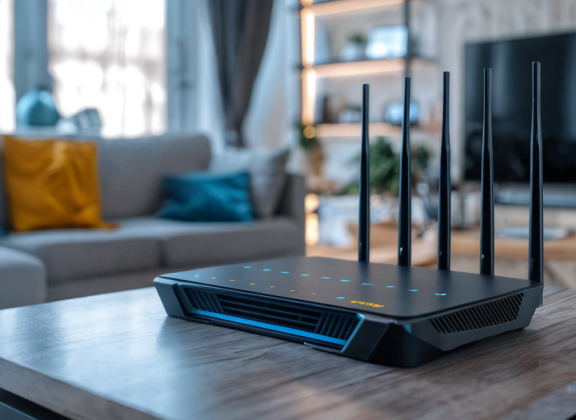When it comes to IPTV, most users immediately think about internet speed or the right media player. However, one of the most critical components that impacts your viewing experience is the IPTV-compatible router. Even with a fast internet plan and a reliable IPTV provider, buffering and signal drops can occur if your router can’t keep up with the demand. This guide explains why selecting the right router matters, what features to prioritize, and how to set up your device for home network stability and top performance.
Why the Router Matters for IPTV Performance
Your router does more than distribute Wi-Fi. It controls data routing, prioritizes traffic, and ensures quality transmission. Since IPTV streams involve continuous data flow, a weak router without proper support for streaming protocols will cause IPTV network congestion and buffering.
The impact is even greater when you stream 4K or HDR content or have multiple devices connected at once. Under these conditions, a fast router for IPTV is essential to manage bandwidth efficiently so that your IPTV feed remains uninterrupted.
Essential Router Features for IPTV
For buffer-free streaming, your router should include these specifications:
Multicast Support (IGMP Snooping or IGMP Proxy). Critical for handling multicast transmission, which prevents excessive bandwidth use and keeps your IPTV connection stable. Without it, expect packet loss and lag during peak times.
Dual-Band Wi-Fi (2.4 GHz + 5 GHz). To enjoy wireless IPTV projector or TV setup, 5 GHz is ideal for higher speeds and fewer interferences. Reserve 2.4 GHz for general devices.
Gigabit Ethernet Ports. A wired Ethernet connection guarantees the best speed, especially for UHD streams, compared to Wi-Fi setups.
Robust Hardware. Look for a router with a strong CPU and enough memory. IPTV streaming is constant and resource-intensive, so a high-performance router is necessary for multitasking without slowdowns.
QoS Settings (Quality of Service). Enables bandwidth management, ensuring IPTV streams take priority over background downloads or other connected devices.
Advanced Technologies That Improve IPTV Quality
Modern routers come equipped with smart features designed for streaming efficiency:
MU-MIMO to handle multiple devices at once without cutting bandwidth.
Beamforming for directing the Wi-Fi signal to your IPTV device for reliable coverage.
VPN Support, essential if you use IPTV through VPN to bypass geo-blocks or improve routing.
How to Optimize Your Router for IPTV
Even a top-tier IPTV streaming router won’t deliver results without proper configuration. Enable IGMP protocol (Proxy or Snooping), activate QoS settings, and prioritize IPTV traffic. For wireless streaming, switch to 5GHz WiFi, and place the router in a clear line of sight with your set-top box or smart TV.
Your router is the backbone of IPTV streaming without buffering. When selecting one, don’t just focus on cost—look for multicast-enabled routers, QoS functionality, gigabit ports, and modern Wi-Fi standards. A proper router for video streaming ensures lag-free playback, whether you’re watching in HD or 4K, giving you the seamless experience IPTV was designed for.
